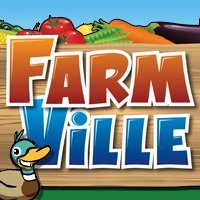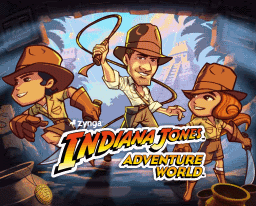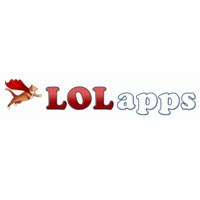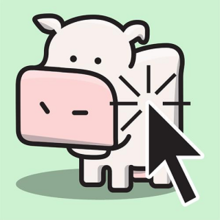
Steve Cartwright is an American video game designer. He is best known as one of the original Activision game designers, credited with such games as Barnstorming, Megamania, Seaquest and Hacker.

Ian Bogost is an American academic and video game designer, most known for the game Cow Clicker. He holds a joint professorship at Washington University as director and professor of the Film and Media Studies program in Arts & Sciences and the McKelvey School of Engineering. He previously held a joint professorship in the School of Literature, Media, and Communication and in Interactive Computing in the College of Computing at the Georgia Institute of Technology, where he was the Ivan Allen College of Liberal Arts Distinguished Chair in Media Studies.

Zynga Inc. is an American developer running social video game services. It was founded in April 2007, with headquarters in San Mateo, California. The company primarily focuses on mobile and social networking platforms. Zynga states its mission as "connecting the world through games".

FarmVille is a series of agriculture-simulation social network games developed and published by Zynga in 2009. It is similar to Happy Farm and Farm Town. Its gameplay involves various aspects of farmland management, such as plowing land, planting, growing, and harvesting crops, harvesting trees and raising livestock. The sequels FarmVille 2 and FarmVille 3 were released in September 2012 and November 2021, respectively.

FishVille is a defunct real-time aquarium simulation game developed by Zynga, it was available as an application on the social-networking website Facebook. The game allowed members of Facebook to manage virtual aquariums by rearing fish. As of October 2011, FishVille had 1.6 million monthly active users. The game was discontinued on December 5, 2012.
Café World is a defunct multiplayer restaurant simulation social network game created by Zynga and launched in September 2009. It quickly became the fastest growing social game ever, reaching 8 million users in seven days, and peaked at over 10 million daily active users, which made it Zynga's third-largest game after FarmVille and CityVille. Available on Facebook, players strive to become master chefs and build a food empire by completing catering orders.
A social network game is a type of online game that is played through social networks or social media. They typically feature gamification systems with multiplayer gameplay mechanics. Social network games were originally implemented as browser games. As mobile gaming took off, the games moved to mobile as well. While they share many aspects of traditional video games, social network games often employ additional ones that make them distinct. Traditionally they are oriented to be social games and casual games.

The Pioneer Trail, formerly known as FrontierVille is a defunct simulation, role-playing video game available for play on social networking sites such as Facebook. Developed by Zynga, and launched on June 9, 2010, it was a freemium game, i.e. free to play, but with the option of purchasing premium content. The game was shut down on April 30, 2015.

Facebook Credits was a virtual currency that enabled people to purchase items in games and non-gaming applications on the Facebook Platform. One U.S. dollar was the equivalent of 10 Facebook Credits. Facebook Credits were available in 15 currencies including U.S. dollars, pound sterling, euros, and Danish kroner. Facebook was hoping eventually to expand Credits into a micropayment system open to any Facebook application, whether a game or a media company application. Facebook deprecated Credits in favour of users' local currencies.

CityVille was a casual social city-building game developed by Zynga, and released in December 2010.
YoWorld is a browser-based virtual world game which was released on May 8, 2008. It is developed by Big Viking Games. The game operates on the freemium model, and is supported through microtransactions, as well as a voluntary in-game ad program. The game itself is free-to-play, however, players can purchase in-game currencies or enroll in special programs and offers to improve their game-play experience or help them progress faster, using real money.

Empires & Allies was a social network game that was Zynga's first combat and strategy game. The game, the first release by Zynga's Los Angeles studio, launched in twelve languages on June 1, 2011. G4TV.com writer Jake Gaskill called the release the "biggest launch of any Zynga title to date". Empires & Allies became the fourth most popular game on Facebook within weeks after launch, reaching 33 million monthly active users by the third week of June. The game was a freemium game, meaning there was no cost to play but players had the option of purchasing premium content. The game was taken offline on June 17, 2013.

Indiana Jones Adventure World is a defunct adventure game for the social network Facebook, released in 2011. It is the first game made by Zynga's Boston development studio, made up of developers from Conduit Labs and Floodgate Entertainment. Adventure World was originally made independent of Indiana Jones, but after Zynga reached a deal with Lucasfilm to bring Indiana Jones to Adventure World, Indiana Jones appeared in off-screen cameo roles. On November 29, Indiana Jones was added to the game in a chapter dedicated to the character called "Calendar of the Sun". At this time, the title was changed to Indiana Jones Adventure World. Hal Barwood, the co-writer and co-designer of Indiana Jones and the Fate of Atlantis and writer and designer of Indiana Jones and the Infernal Machine worked on Indiana Jones Adventure World in the area of narrative design. Game writer Jonathon Myers has provided narrative support in the wake of Hal Barwood's contribution.
Zynga.org was an independent nonprofit organization started by social games developer Zynga, Inc., in October 2009. The purpose of Zynga.org was to promote and facilitate the use of social games for philanthropic initiatives. It was incorporated as a separate legal entity in March 2012. The organization was dissolved in 2016.

CastleVille is a defunct social network game made by Zynga's Dallas studio and was released in November 2011. It combined a number of elements from the company's other "Ville" range of games. On launch it had received a million "likes" on Facebook. By the end of its first month, it had become the fifth most popular game on Facebook with 26.5 million players. The game was a freemium game, meaning there is no cost to play but players have the option of purchasing premium content.

ChefVille is a defunct multiplayer restaurant simulation social network game created by Zynga. The game was announced at Zynga's June 2012 Unleashed event, debuted August 2012 on Facebook, and was released October 3, 2012 on Zynga.com. Within the first month of its release, ChefVille had become the No. 1 Facebook game. As of early October 2012, ChefVille had more than 4.8 million daily active users (DAU) and more than 45 million monthly active users (MAU).

Gabe Zichermann is a Canadian-American author, public speaker, and businessman. He has worked as a proponent of leveraging game mechanics in business, education, and other non-entertainment platforms to increase user engagement in a process called gamification.

Cookie Clicker is a 2013 incremental game created by French programmer Julien "Orteil" Thiennot. The user initially clicks on a big cookie on the screen, earning a single cookie per click. They can then use their earned cookies to purchase assets such as "cursors" and other "buildings" that automatically produce cookies. Upgrades are also available and can improve the efficiency of clicks and buildings, among many other mechanics that allow the user to earn cookies in different ways. The game lacks a conventional ending.

Incremental games, also known as clicker games, clicking games or tap games, are video games whose gameplay consists of the player doing simple actions such as clicking on the screen repeatedly. This "grinding" earns the player in-game currency which can be used to increase the rate of currency acquisition. In some games, even the clicking becomes unnecessary at some point, as the game plays itself, including in the player's absence, hence the moniker idle game.

Lolapps was a developer and publisher of social games on the Facebook platform. Lolapps was best known for creating Ravenwood Fair with John Romero which had 25 million players worldwide.
















